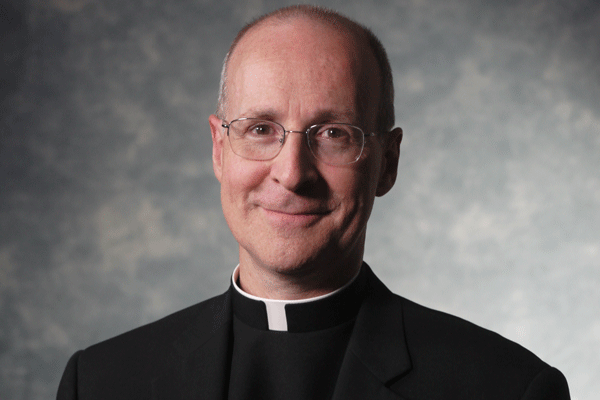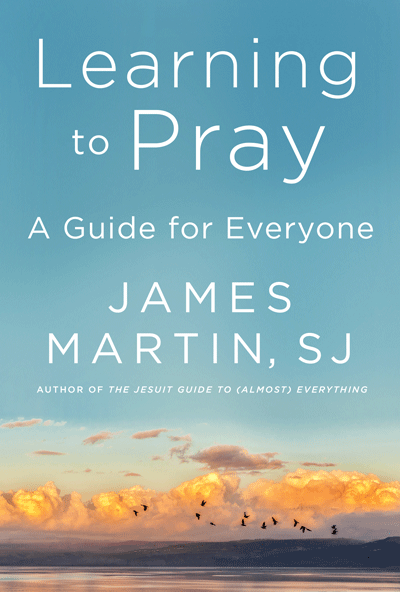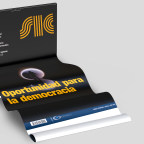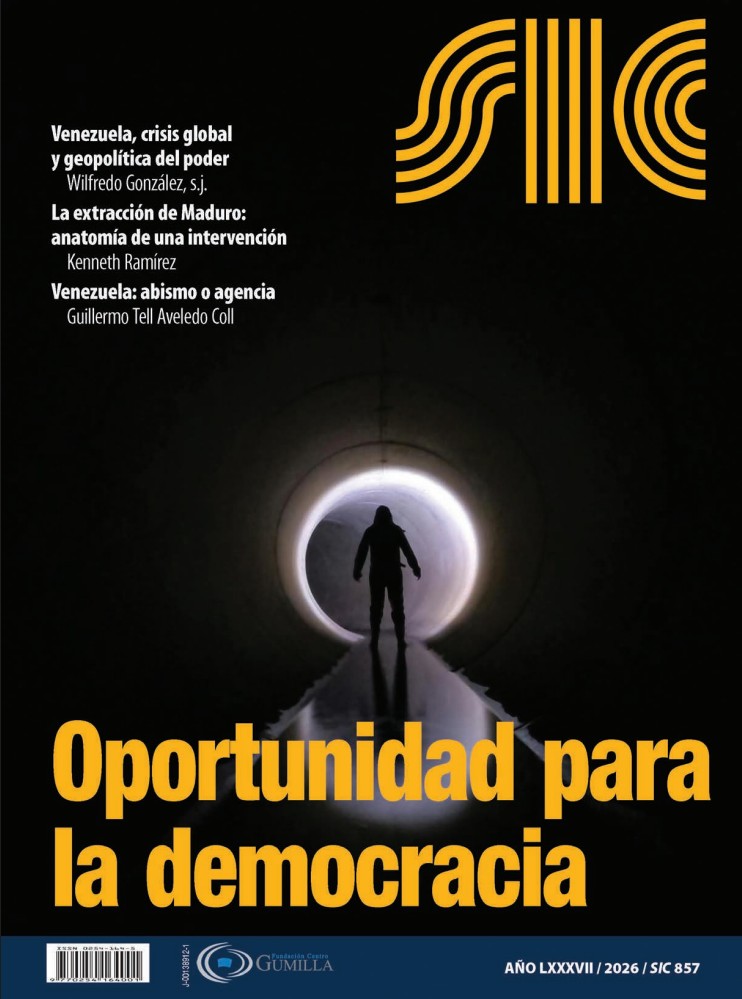
The director of Revista SIC, Juan Salvador Pérez, interviewed the Jesuit priest James Martin s.j. about four themes: poverty, patience, the encyclical Fratelli Tutti and prayer.

James Martin SJ is an American Jesuit priest, writer, and editor-at-large of the Jesuit magazine America. In 2017, Pope Francis appointed Martin as a consultant to the Vatican’s Secretariat for Communications. He is a New York Times Best Selling author and frequent commentator on the life and teachings of Jesus, and on Ignatian spirituality as inspired by the life and teachings of Saint Ignatius of Loyola. Author of numerous publications, his latest book is titled Learning to pray, a guide to everyone.
1.- Poverty. The Spanish philosopher Adela Cortina has pointed out that there is some kind of cultural rejection of poverty or, as she coined it, aporophobia (phobia ̶ fear ̶ of poverty and poor people), and she invites us to overcome this marginalizing, undemocratic behavior. How should we act in the face of poverty? What should we do about this reality?
That idea makes sense to me. Over the past few decades, we have been conditioned, at least in the West, to see the poor as threats rather than as our brothers and sisters in need. In the United States, for example, the rich have convinced the middle class that the poor are their enemies—ready to take things from them that the poor supposedly don’t deserve. It’s the same across the globe, with people seeing refugees and migrants, again, not as people in need, but as threats, as people to fear, as the “other.”
All this is opposed to the message of Christ, who not only was poor himself, but also ministered to the poor and specifically asks us—commands us—to care for the poor. It’s amazes me to hear politicians in the West ignore or deny this fact: Part of being a Christian is caring for the poor.
Perhaps the best way to soften hearts and effect a conversion among people is to introduce them to the poor, either one on one, or through stories. This is part of the “culture of encounter” that Pope Francis speaks of. It’s much more difficult to label someone as undeserving or a threat if you know his or her story. It’s even better if you can hear him or her tell their stories face to face. There’s a reason why Jesus taught in parables, that is, in stories: they have the ability to convert us.
2.- Patience. The humankind is currently going through hard times. Hard times demand virtuous attitudes, and patience stands out among those virtues. It comes directly from Latin Patientia, “the quality of suffering or enduring.” Today, we understand it as the ability to withstand adversity. What does it require of us to be patient in our present circumstances? How much suffering is there in being patient?
Most of our lives are spent waiting. Most of our lives, you could say, are lived not in the awful terror of Good Friday or the supreme joy of Easter Sunday but somewhere in between. Most of our lives, then, are spent in Holy Saturday: waiting, longing, wondering. We wait for things to get better. We wait for life to change. We wait for a vaccine. Part of this waiting is patience.
The Christian wait is more than simply a blind waiting, as if we don’t know what will happen, or it is all up to fate. The Christian wait presumes hope. It trusts that change is always possible, that new life is always on the horizon and that nothing is impossible with God. Just like the disciples discovered on Easter Sunday.
3.- Fratelli Tutti. All Brothers, a couple of words that define Pope Francis’s plea. This encyclical letter is an urgent call for human fraternity and social friendship as means of reconstruction, of healing a wounded world. How do we really become brothers and sisters? How do we specifically become brothers and sisters? When are we truly brothers and sisters?
These are important questions. For me, you could sum up Pope Francis’s great encyclical Laudato Si, on creation, with a powerful phrase he uses, “Everything is connected.” And perhaps one way to sum up Fratelli Tutti is with the phrase “Everyone is connected.”
Part of being brothers and sisters is not simply caring for one another—as important as that is—but becoming friends. And what does that mean? It means taking the time to listen to one another, to join with them in difficult times and even to weep with them. And to laugh too!
One of my favorite expressions of this comes from a Jesuit professor of moral theology at Boston College, James F. Keenan, SJ. It’s his brilliant definition of mercy, but it also can be used as a definition for friendship, and for being someone’s brother or sister. He says it’s the “willingness to enter into the chaos of another person’s life.” That’s what’s needed.
4.- Prayer. You recently published a book (you define it as a handbook) for Learning to Pray. The moment is quite right, because a borderline situation like the one we are living with the pandemic led us all (in one way or another, believers or not) to encounter our deepest fears and questions. Some years ago, Cardinal Carlo Maria Martini S.J. and Umberto Eco addressed the issue in an exchange of letters, and I would like to go back to this topic in these circumstances: How does a nonbeliever pray? And how does a believer pray?
Those are difficult questions! I think that I might disagree with some people who say that the non-believer can pray. I might use the word “meditate” instead. Certainly, a non-believer can meditate, and many do. But if the person is completely resistant to the idea of God then it would be hard to “pray.” Because prayer has an object, and that object is God.
But even if there is a tiny bit of curiosity about the possibility of God’s existence, then I think God can work with that! So the agnostic or the doubter or the seeker can surely pray.
In that case one of the most important things is for the seeker to recognize that the very desire for prayer comes from God. That is, many seekers feel that they are praying simply out of curiosity. But I often say to them, “This is how God is drawing you.” How else would God do so? A small plaque in a retreat house summed this up for me: “That which you seek is seeking you.”
How does the believer pray? Well, so many ways! (That’s one reason I wrote my new book.) But at heart he or she prays honestly, with trust and then with acceptance. And in any way that he or she desires. And there are no wrong ways to pray. Whatever way brings you closer to God is the right way for you.
Juan Salvador Pérez
Director Revista SIC




